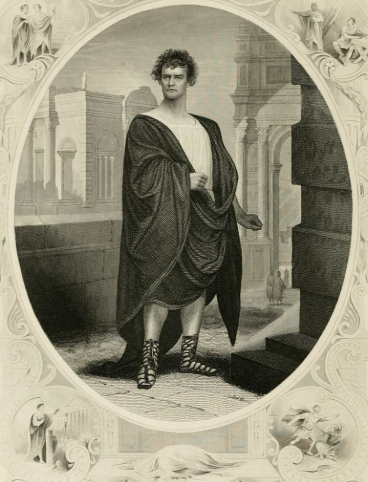"The Woman in the House Across the Street From the Girl in the Window": Strong Storyline, Shoddy Satire
"The Woman in the House Across the Street From the Girl in the Window" attempts to satirize mystery thrillers while playing to the strengths of the genre. Eren Levine '24 reviews the series, an enjoyable show that often fails to make its satirical elements clear.


An attention-grabbing title is just the tip of the iceberg with the complicated, somewhat unclear satirical murder mystery “The Woman in the House Across the Street from the Girl in the Window.” The name of this new Netflix series hints that the show may not be completely serious, because, let’s be honest, what self-respecting show would have a title that is so winding and repetitive — and 14 words long, no less? However, because the plot of the show is similar to that of the mystery thrillers which it aims to make fun of, it is rather difficult to see it as completely satirical unless you know to look for the jokes.
As someone who enjoys the genre that this show imitates, I was drawn to it without knowing about its satirical intentions, even though I suspected it may not be completely serious because of the title. Despite having a hunch that the show was supposed to be satire, however, I didn’t fully grasp all the satirical moments until after I finished watching and read more about the show. Was the satire well-done, then, or just a flop? On the one hand, shows that are very clearly satire sometimes feel so simple and obvious that they become unenjoyable. On the other hand, satire that is too difficult to recognize can hardly be seen as successful.
The plotline of a woman who is always slightly drunk, and whose life is falling apart, witnessing a murder that no one believes her about is both extremely specific and a story that has somehow been created and recreated numerous times. For this reason, I understand the appeal of poking fun at this bizarre genre. I watched “The Woman in the House Across the Street from the Girl in the Window” in one day, and was eager to discover who the murderer was and the explanation for all the complicated twists and turns in the plot, so in that sense, I would say the show was successful.
However, I believe I would have enjoyed the series just as much if it was not a satire. The recurrence of casseroles, a debilitating fear of rain, and a handyman who took years to fix a mailbox all caught my attention as out of the ordinary, but because I was not totally aware that the show was satirical, I assumed they would eventually play into the plot by showing who the murderer was. If the show was more obviously satirical, I might have more fully appreciated these moments for what they were meant to be.
Unconvinced by the show’s satire, I also misinterpreted several elements of the plot, such as the death of Anna’s daughter. I initially thought Anna’s character was making up the story about how her daughter died when she shared that her daughter had been killed and eaten by a cannibal while accompanying her dad to work at a prison. This gruesome story about her death felt too unrealistic to me, even though I had the faint idea that the show was not completely serious. Most parts of the show that had confused me at first later made sense and felt comedic in hindsight, but this detail did not. It was just so impossible and gruesome — far beyond the slight unconventionality of other satirical moments in the show — that I simply could not find the humor in it.
One very small detail did stand out to me, however, although I didn’t know what to make of it until I read about it after finishing the show. When Anna visits her daughter’s grave in the beginning of the show, the epitaph reads, “If love could have saved you, you would have lived forever.” This caught my attention as sweet but not something I would think to put on a gravestone. By the last episode, the epitaph said, “There is no ‘I’ in heaven,” which makes no sense and sounds quite ridiculous. I was confused as to why it had changed and wondered if there was going to be some sort of supernatural component to the show. After reading about it, though, I learned that the epitaph kept changing to be something even more absurd than the last, reinforcing the idea that this is a satire meant to make fun of the ridiculous nature of the genre. I ended up really enjoying this small detail because it felt like a simple and subtle satirical moment that contributed to the mood of the show as a whole.
Overall, I loved “The Woman in the House Across the Street from the Girl in the Window” and would definitely recommend it to anyone looking for a short, bingeable, and thrilling series. However, I would have preferred if the satirical nature of the show was slightly more apparent. While it is difficult to achieve a balance of clear but not overly obvious satire, this change would have made me appreciate the show even more.




Comments ()